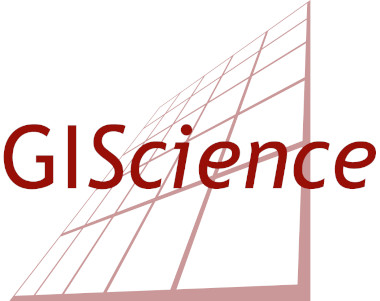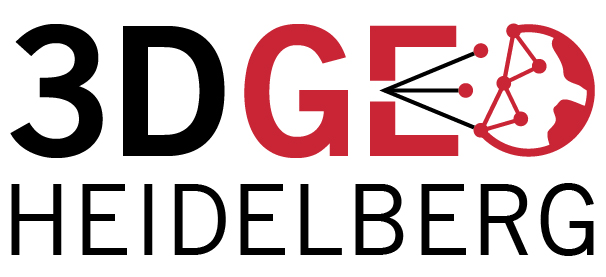Search results for: “deepvgi”
-
Jugend präsentiert zu Besuch bei HeiGIT
Am 02.07. besuchte eine Delegation von Alumni von “Jugend präsentiert” im Rahmen der diesjährigen Summer School REMOTE von “Jugend präsentiert” das Heidelberg Institute for Geoinformation Technology (HeiGIT gGmbH) an der Universität Heidelberg. Aufgrund der Corona-Pandemie fand der Besuch allerdings nur virtuell statt: Prof. Alexander Zipf berichtete und diskutierte in einem Online-Meeting mit den Teilnehmerinnen über die…
-
HeiGIT gGmbH is One Year Old Today!
Today (1st July 2020) marks the first birthday of HeiGIT gGmbH! Over this first year, HeiGIT, the Heidelberg Institute for Geoinformation Technology at Heidelberg University has been involved a large number of events, projects, publications, and press coverage. Founded on the 1st July 2019, HeiGIT is a non-for-profit organisation receiving core-funding by the Klaus Tschira…
-
Tools for Disaster Risk Reduction by HeiGIT – Celebrating the International Day for Disaster Risk Reduction
Today we celebrate the International Day for #DisasterRiskReduction. HeiGIT offers a growing set of tools and services that support humanitarian aid during and before disasters. Examples include work in the context of the Missing Maps initiative, like conceptualising and extending microtasking apps like MapSwipe, as well as services for analysing MapSwipe data and making it…
-
Place in GIScience Paper at Platial 2019
The International Symposium on Platial Information Science PLATIAL’19 will be held this year at the University of Warwick in September 5-6. The programme has just been published and includes a paper from our research group about a systematic literature review about Place in the GIScience Community. As the first PLATIAL’2018 symposium held in Heidelberg 2018…
-
Mapping Human Settlements with Higher Accuracy and Less Volunteer Efforts by Combining Crowdsourcing and Deep Learning
Our new paper on Machine Learning and Humanitarian Mapping Nowadays, Machine Learning and Deep Learning approaches are steadily gaining popularity within the humanitarian (mapping) community. New tools such as the ML Enabler or the rapId editor might change the way crowdsourced data is produced in the future. Hence, at the Heidelberg Institute for Geoinformation Technology…
-
HeiGIT supports Citizien Science @ Helmholtz ThinkCamp
We are always happy to support citizen science projects at the HeiGIT. HeiGIT/ GIScience efforts already range from tools that assess the data quality of citizen science projects (see, e.g., this blog post about “Plausible Parrots“) to approaches related to data creation, like MapSwipe Analytics (learn more here). Currently, we are supporting citizen science approaches…
-
Empower Humanitarian Mapping with Deep Neural Networks to Detect Human Settlements
Recently, earth observation by satellites has shown great capability in supporting a range of challenges such as disaster assessment, agriculture monitoring, and humanitarian mapping. MapSwipe, as a humanitarian mapping app, provides a crowdsourcing platform to collect volunteered geographical information (VGI), in order to generate the demanding base map of human settlements for better planning of…
-
Put the world’s most vulnerable people on the map with MapSwipe
Humanitarian organizations can’t help people if they can’t find them. This was the simple reason to create MapSwipe back in 2016 and it is still as pressing as in the very beginning. In the last 2,5 years volunteers have contributed more than 18,000,000 results, which help humanitarian organizations to create maps of human settlements and…
-
Colloquium invitation: Supporting the most vulnerable people before the disaster strikes – International Disaster Risk Reduction within the German Red Cross
The GIScience group cordially invites everybody interested to our next open GIScience colloquium talk about: Supporting the most vulnerable people before the disaster strikes – International Disaster Risk Reduction within the German Red Cross Speakers are Stefanie Lux and Stefan Scholz from the German Red Cross (GRC, Generalsekretariat Berlin, International Coordination). Monday 21.01.2019, 14:15 pm Institute…
-
Deep Learning from Multiple Crowds: A Case Study of Humanitarian Mapping
Our paper about Deep Learning from Multiple Crowds: A Case Study of Humanitarian Mapping is available online now. Satellite images are widely applied in humanitarian mapping which labels buildings, roads and so on for humanitarian aid and economic development. However, the labeling now is mostly done by volunteers. In a recently accepted study, we utilize deep…
-
Deep Learning from Multiple Crowds: A Case Study of Humanitarian Mapping
Satellite images are widely applied in humanitarian mapping which labels buildings, roads and so on for humanitarian aid and economic development. However, the labeling now is mostly done by volunteers. In a recently accepted study, we utilize deep learning to solve humanitarian mapping tasks of a mobile software named MapSwipe. The current deep learning techniques…
-
Deep Learning with Satellite Images and Volunteered Geographic Information
Recently, deep learning has been widely applied in pattern recognition with satellite images. Deep learning techniques like Convolutional Neural Network and Deep Belief Network have shown outstanding performance in detecting ground objects like buildings and roads, and the learnt deep features are further applied in some prediction tasks like poverty and population mapping. On the…


